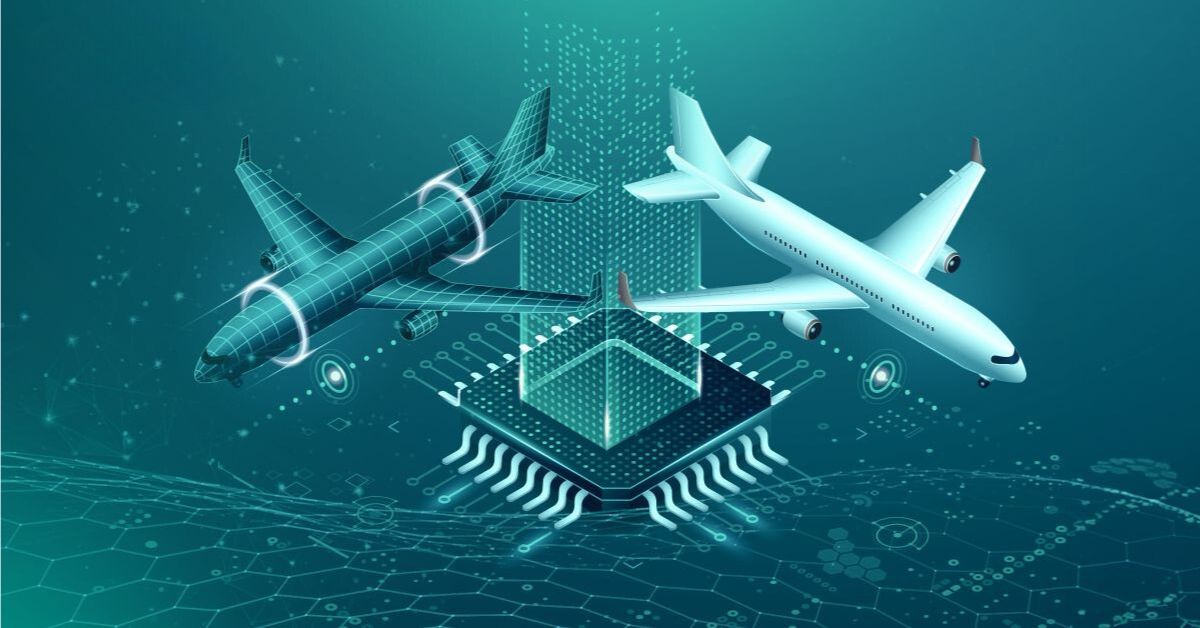DUBAI — The aviation industry has consistently led in adopting innovative technologies to boost efficiency, security, and transparency. Recently, blockchain technology has emerged as a transformative force, with potential to revolutionize various sectors, including aviation.
Blockchain operates as a decentralized, secure digital ledger, recording transactions transparently and immutably across a network of computers, making it highly resistant to tampering.
Brendan McKittrick, founder and Chairman of Aerobloc, a leading decentralized Web3 ecosystem designed to transform aviation, believes blockchain can significantly reduce costs through several mechanisms.
“It enhances transparency, offering real-time visibility into goods movement, reducing fraud and error risks. Smart contracts automate and execute agreements, streamlining processes like maintenance, payments, and cargo tracking, thus cutting administrative costs. Additionally, blockchain’s robust security features protect sensitive aviation data, ensuring information integrity and confidentiality,” he says.

Blockchain also promotes interoperability among various aviation stakeholders, such as airlines, airports, maintenance providers, and regulators, leading to smoother operations and reduced operational costs. It enables trustless collaboration, removing the need for costly intermediaries and building trust through consensus.
Benefits of the technology
Blockchain technology offers numerous specific cost-saving opportunities for airlines. McKittrick told TRENDS that it streamlines aircraft maintenance by enabling real-time tracking and verifying maintenance records, reducing downtime and related costs.
Furthermore, blockchain’s transparency helps combat ticket sales and cargo shipment fraud, protecting airline revenues. Smart contracts automate payment processes, speeding up transactions and minimizing manual reconciliation costs.
“Improved cargo tracking through blockchain ensures timely deliveries, reducing costs related to lost or delayed cargo,” McKittrick noted. He added that efficient management of loyalty programs through blockchain reduces administrative expenses and enhances customer satisfaction.
“Additionally, blockchain can optimize fuel procurement and supply chain management, leading to reductions in fuel consumption and the procurement of goods and services.”
Blockchain technology has the potential to introduce transformative trends in the aviation industry. “Tokenization of assets could make aircraft ownership more accessible, while decentralized autonomous organizations (DAOs) could democratize airline decision-making,” McKittrick stated.
At A Glance Innovative Adoption in Aviation: The aviation industry leads in embracing technologies like blockchain for enhanced efficiency, security, and transparency. Blockchain's Role: A decentralized, tamper-resistant digital ledger, blockchain records transactions across a network, offering robust security and transparency. Cost Reduction through Blockchain: Aerobloc's Brendan McKittrick stresses blockchain's potential in cutting costs by improving transparency, automating processes, and enhancing security. Interoperability and Collaboration: Blockchain fosters smoother operations and reduced costs by promoting interoperability and trustless collaboration among aviation stakeholders. Specific Benefits for Airlines: Blockchain streamlines aircraft maintenance, combats fraud, automates payments, and improves cargo tracking, significantly reducing operational costs. Transformative Trends: Blockchain introduces trends like asset tokenization, DAOs for decision-making, NFTs for personalized travel, and streamlined supply chain management. Challenges to Overcome: Adoption challenges include aligning with regulatory frameworks, achieving stakeholder interoperability, ensuring data security, and integrating with legacy systems. Future of Blockchain in Aviation: McKittrick envisions blockchain fundamentally transforming airline operations in the next decade, enhancing efficiency and passenger experience. Regulatory and Technical Solutions: Proactive engagement with authorities, standardized protocols, robust encryption, and scalable platforms are key to overcoming adoption challenges. Education and Investment: Addressing resistance through education and careful investment in infrastructure and talent is crucial for successful blockchain integration in aviation.
He added that non-fungible tokens (NFTs) might personalize travel experiences, and blockchain can streamline supply chain management. Loyalty programs could become more versatile, and decentralized identity verification may simplify security processes. Additionally, blockchain can track and verify sustainability efforts, aligning air travel with environmental goals.
He emphasized that by embracing these trends, the aviation industry can reduce costs, enhance passenger experiences, and promote transparency, fundamentally changing how we approach air travel.
Challenges in implementing blockchain in airlines
Despite the promise of blockchain technology for the aviation industry, several challenges must be addressed for its widespread adoption. McKittrick notes that the sector’s stringent regulatory environment necessitates aligning blockchain solutions with existing legal frameworks, a complex and time-consuming process.
Achieving interoperability among various stakeholders, including airlines, airports, and regulators, is a critical hurdle, requiring extensive coordination and consensus.
Additionally, safeguarding the privacy and security of sensitive passenger and flight data in compliance with data protection regulations is paramount. Integrating blockchain with legacy systems poses technical challenges, as does ensuring the scalability of blockchain networks to handle the immense volume of daily transactions.
McKittrick suggests that educational efforts and cultural shifts are needed to promote blockchain adoption, overcoming resistance to change within the industry.
“The initial investment in infrastructure and talent is substantial, and careful vendor selection is crucial. Maintenance and ongoing updates are necessary for long-term success. Despite these challenges, the potential benefits make it worthwhile for airlines to navigate the path to blockchain adoption carefully,” he added.
Regulatory compliance
He noted that regulatory compliance can be addressed by proactively engaging with aviation authorities to develop a regulatory framework that accommodates blockchain innovations. Achieving interoperability among diverse stakeholders necessitates the establishment of standardized protocols and industry-wide collaboration.
Additionally, robust encryption and access control mechanisms can mitigate concerns about data security and privacy. Integrating blockchain with legacy systems demands a phased transition, focusing on compatibility. Moreover, scalability challenges can be resolved by selecting scalable blockchain platforms and optimizing for continuous performance.
To tackle resistance to change, comprehensive educational efforts for employees and stakeholders should be initiated to instill trust in the technology.
“While the initial investment can be substantial, meticulous cost-benefit analyses can underscore the long-term savings and benefits. The appropriate consensus mechanism and vendor selection require careful evaluation, and ongoing maintenance and updates must be a priority for sustained success. Addressing these challenges can unlock the potential of blockchain to significantly reduce costs and enhance operational efficiency within the airline industry,” he added.

Future expectations
McKittrick believes that blockchain technology holds the promise of fundamentally transforming the way airlines operate in the next five to 10 years.
“The prospects for its use in the industry are exceptionally bright,” he said. “Blockchain can streamline maintenance processes, enhance transparency, and reduce operational costs, leading to more efficient and cost-effective airline operations.”
Moreover, passengers can look forward to an improved travel experience with streamlined identity verification and innovative blockchain-based loyalty programs. Airlines can also better demonstrate their commitment to environmental sustainability by leveraging blockchain to track and verify green initiatives.
The potential for blockchain to foster interoperability and even decentralized decision-making through DAOs further underscores its transformative impact on the aviation sector.
“While challenges and regulatory hurdles remain, the prospects for blockchain in the airline industry are poised to revolutionize how we think about air travel, making it more efficient, secure, and passenger-centric,” he said.








